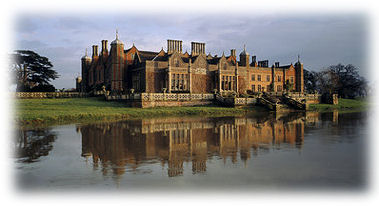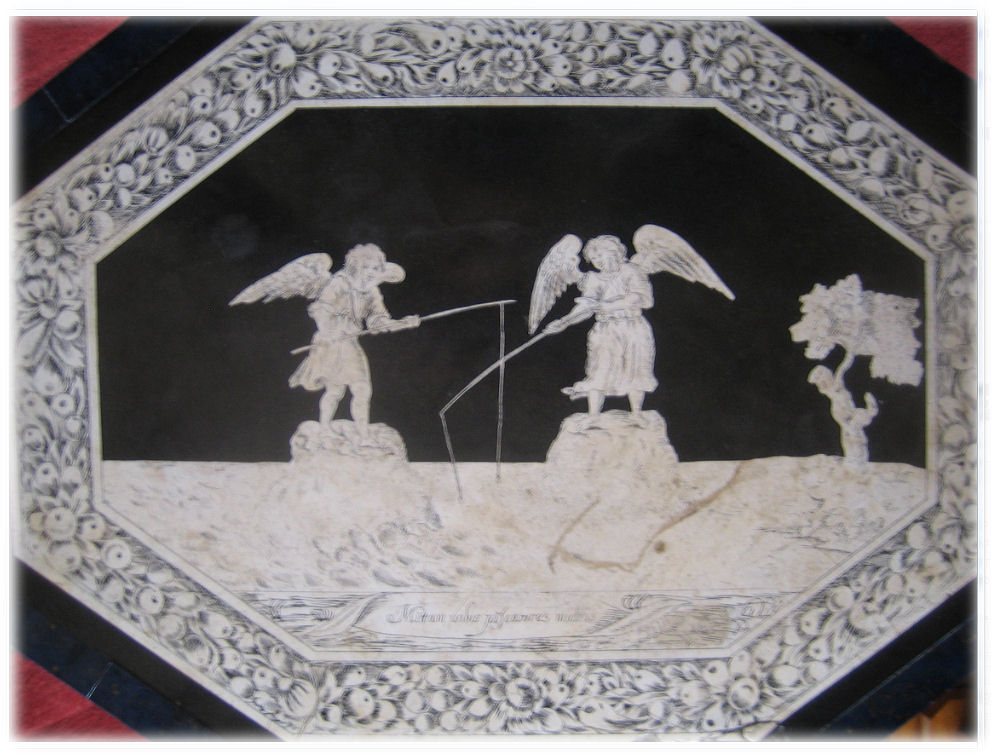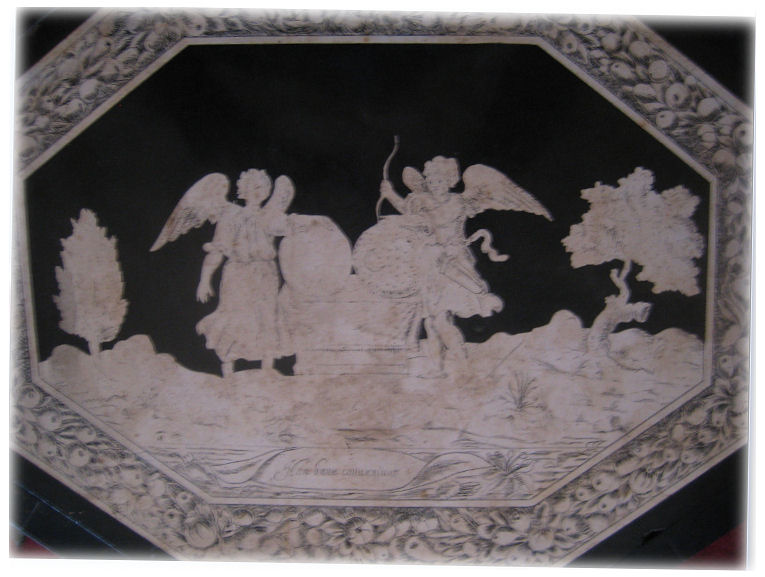The Scagliola tables Can you help in interpreting the two scagliola tables
in the Library.
The inscription reads mittam uobis piscatores multos I shall send you many fishermen This is extracted from Matthew says Jesus said, ". . . . The kingdom of heaven is like a net that was let down into the lake and caught all kinds of fish. When it was full, the fishermen pulled it up on the shore. Then they sat down and collected the good fish in baskets, but threw the bad away. This is how it will be at the end of the age. The angels will come and separate the wicked from the righteous and throw them into the fiery furnace, where there will be weeping and gnashing of teeth." (Matthew 13:47-50) This bears out the interpretation I was given 15 years
ago that the angels are selectively saving souls from entering purgatory
by fishing for them. Table two is not usually on prominent display and I have never heard an interpretation of it.
It shows two globes. One is clearly a celestial globe as it shows a moon and stars. The detail of the other is obscured but I assume it is a terrestrial globe. A male character with a quiver of arrows stands alongside the celestial globe and a female character alongside the terrestrial globe. The inscription on the table reads Non bene conueniunt – they do not go well together [do not agree] This is from Ovid, metamorphoses 2. 846 (the Europa myth) Non bene conveniunt [also spelled conueniunt],
nec in una sede morantur Majestas et Amor So how to interpret this picture? Ovid refers to the Europa myth which concerns Europa, a phoenecian princess, daughter of the king of Tyre. The king of the Gods, Zeus, had fallen in love with her beauty. In order to approach her he turned himself into a magnificent white bull and eventually encourages her to ride on his back whereupon he abducted her. Seduced by Zeus, Europa bore him three children but eventually she married an earthly king and Zeus departed back to the heavens where he can still be seen in the stars as Taurus. Clearly this is not the story depicted in the table but I wonder if it shows another God/mortal pair Cupid and Psyche. I base this entirely on the quiver of arrows. Psyche was so beautiful that Venus became jealous of her and despatched her son Cupid to make Psyche fall in love with a horrible monster. He was to achieve this by pricking her with one of his arrows. As soon as he set eyes on her beauty Cupid pricked himself with an arrow so that he fell in love with her. After many trials and tribulations Psyche is accepted into the Gods so that she and Cupid can remain together always. There are two problem here; this story has a happy ending so does not fit the quotation and the woman has wings. That does not necessarily mean she is an angel and could still be Psyche. Do you have a different interpretation? I would welcome comments or opinions. You can leave a message through the office or e-mail Len.Mullenger@musicweb-international.com I thank three scholars for their help: Brian Wilson
(Bexley: Retired), Glyn Pursglove Reader in English and Ceri Davies,
Professor of Medieval Latin, both at Swansea University.
Return to Index page |



